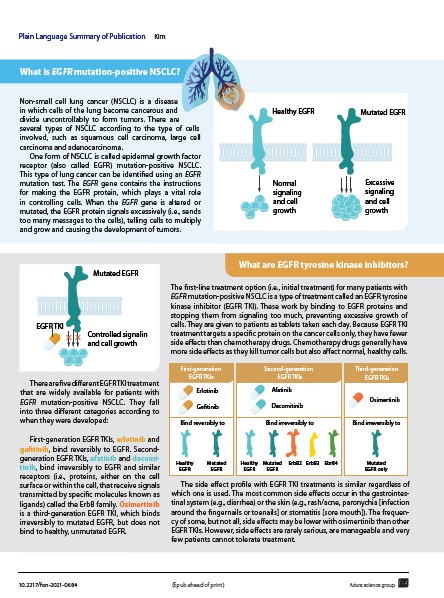- Written by Joanne Walker
Future Science Group’s plain language summaries in lung cancer
November is Lung Cancer Awareness Month. By understanding more about the options available, people with lung cancer can feel empowered to make informed decisions about their treatment and care. Many patients organization provide a wealth of educational resources and tools for patients and their caregivers. Plain language summaries of published articles in lung cancer can also help towards understanding more about the treatment options available.
Here we summarise the plain language summaries in lung cancer published in the Future Science Group journals.
A plain language summary of results from the ADAURA study: osimertinib after surgery for patients who have early-stage EGFR-mutated non-small cell lung cancer
Osimertinib (also known as TAGRISSO) is a medication used to treat a type of non-small cell lung cancer (also called NSCLC) with a change (mutation) in the EGFR gene, known as EGFR-mutated NSCLC. This summary discusses the initial results of the ADAURA clinical study, which was carried out to see how well osimertinib worked in people with EGFR-mutated NSCLC. The ADAURA study is still ongoing and more results are expected to be released in the future.
Read the article in full here
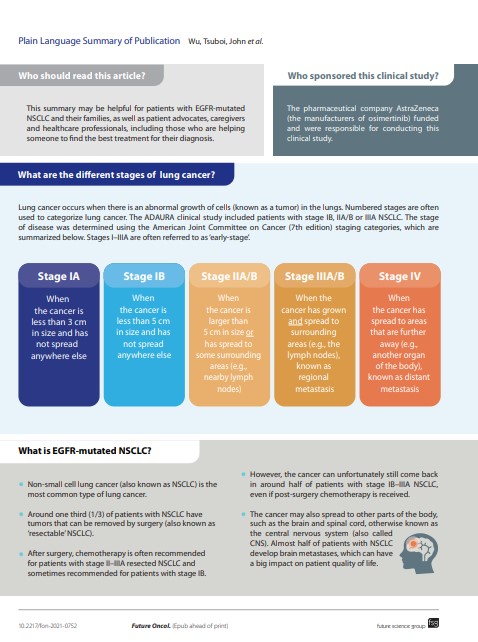
Neoadjuvant osimertinib with/without chemotherapy versus chemotherapy alone for EGFR-mutated resectable non-small-cell lung cancer: NeoADAURA
In this summary, the design of the ongoing NeoADAURA study is discussed. NeoADAURA is testing osimertinib treatment in people with EGFR-mutated NSCLC before they have surgery, either with or without chemotherapy compared to chemotherapy on its own.
Read the article in full here
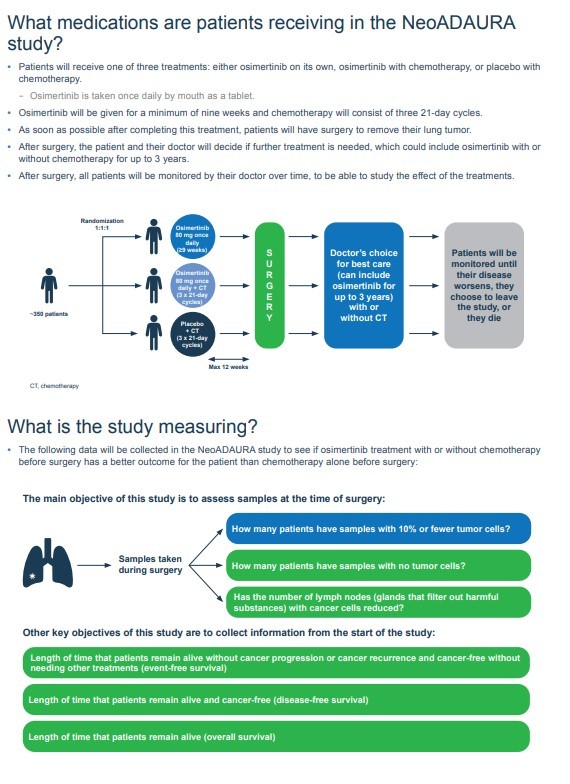
Plain language summary of the final results from the GioTag study
The GioTag study looked at the medications afatinib and osimertinib in people with NSCLC who had mutations in the EGFR gene. This was a retrospective, observational study meaning the data in the study was collected from patients who had previously been treated in the ‘real-world’ (that is, not in a clinical study). This summary explains the results of this study.
Read the article in full here
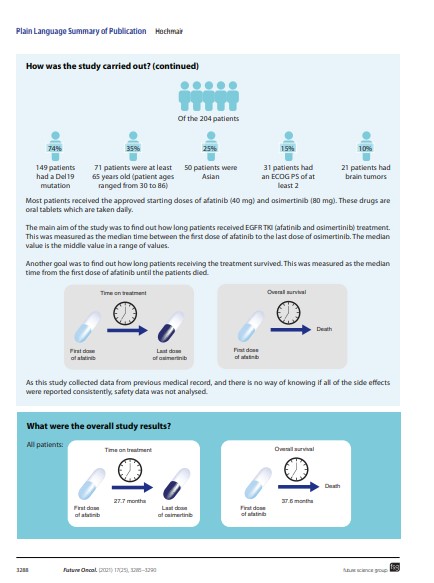
Plain language summary of the CROWN study comparing lorlatinib with crizotinib for people with untreated non-small cell lung cancer
Lorlatinib (also called Lorbrena) is a treatment approved to treat a type of lung cancer called ALK+ NSCLC, where the cancer is caused by a change in the ALK gene. The CROWN study tested lorlatinib and another medicine called crizotinib in participants with untreated NSCLC that had spread to other parts of their body. This article describes the results of this study.
Read the article in full here
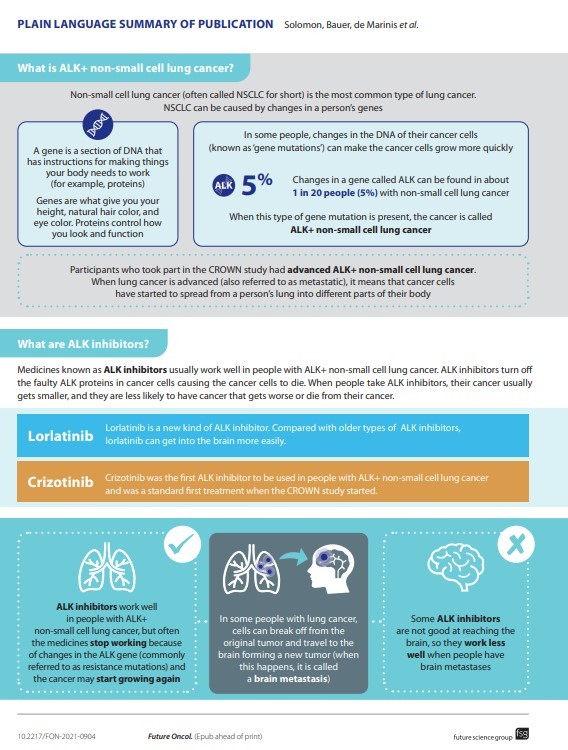
Comparing EGFR tyrosine kinase inhibitor treatments in EGFR-mutated NSCLC across Asian and non-Asian patients: a plain language summary
People from different ethnic populations respond differently to treatments for non-small cell lung cancer. EGFR tyrosine kinase inhibitors (often shortened to EGFR TKI treatments) are a form of treatment for NSCLC called EGFR mutation-positive NSCLC. There are currently five EGFR TKI treatments available, which are categorized based on when they were developed. As different people respond differently to treatments, this review looks at data from clinical studies to investigate how different EGFR TKI treatments are used to treat people with NSCLC from different ethnicities
Read the article in full here
